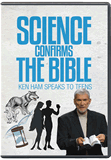Survival of the Fittest
Survival of the Fittest—A Brutal Philosophy
If evolution requires death in order to operate, why should humans suffer feelings of loss when others die. Evolution doesn’t care who lives or who dies; it doesn’t care if that person is related to you or not. It is a cold thing that toils, eats, and destroys.
Survival of the Smaller Red Deer?
We’ve all heard it before on TV or in biology textbooks: evolution removes those members of a species that are less fit. This, after all, has been one of the assumptions about how evolution prunes the gene pool and somehow blindly selects those attributes that are better adapted to the environment What does one do, however, with the recurrence of “less-than-ideal” members of the species?
Kindness Hard to Fit into Evolutionary Worldview
Evolutionary scientists observe altruistic and compassionate behavior in humans and must explain the source—but their Darwinian framework requires that such behavior must be evolutionarily motivated. In other words, non-self-interested behavior must still be reducible to self-interest.
Articles About Survival of the Fittest
-
April 12, 2018 from Refuting Common Evolutionist Claims
If evolution means “change,” then yes, natural selection is evolution/change. Typically evolution means that natural selection is molecules-to-man evolution.
-
Humps May Have Been Key to Ancient Camel’s Arctic SurvivalMarch 16, 2013 from News to Know
Camel humps may have been the key to Arctic survival for ancient camels.
-
-
Survival of the SnifferMay 28, 2011 from News to Know
Mammals grew bigger brains “the better to smell you, my dear!”
-
NewScientist: “Cooperative Robots Obey Evolutionary Law”May 7, 2011 from News to Know
Robots who “learned” how to share are “the first real confirmation of Hamilton’s rule, one of the most fundamental theories in modern biology.”
-
Global Ice Ages "Triggered" Evolution?Oct. 30, 2010
Could global ice ages have “triggered” evolution—or is it just another wild idea that works on paper but lacks actual evidence?
-
Whitefish: Latest Example of EvolutionMay 8, 2010
If the Canadian Press is to be believed, whitefish provide the latest example of “evolution” in action. But as with previous examples, the evolutionary significance is overstated.
-
Survival of the Kindest?Dec. 12, 2009 from News to Know
Move over, Charles Darwin: researchers at Oregon State University and the University of California–Berkeley want to supplant “survival of the fittest” with “survival of the kindest.”
-
Incredible Elephant Memory Aids in Herd SurvivalAug. 16, 2008
Perhaps an elephant should stand in for the “sage owl” character sometimes portrayed in cartoons.
-
Survival of the ... Runts?July 21, 2007
Researchers investigate how inferior members of a deer herd keep on recurring.
-
Be Yourself: Survive!May 12, 2007 from News to Know
Research conducted by doctoral student Mark Fitzpatrick of the University of Toronto at Mississauga is uncovering how more unique individuals of a species enjoy a survival advantage.
-
Winter Harshness and Sheep SurvivalMarch 24, 2007
A multi-decade study of Scottish sheep indicates that weather patterns have an effect on “body shape and population size,” according to the BBC, who reports on this ovine study led by Imperial College London professor Tim Coulson and colleagues.
-
Evolution, the Foundation For Our Economy?Dec. 9, 2006
A discussion of an opinion piece from The Denver Post which is hardly worth mentioning, except for its service as a recitation of some common arguments for evolution-in particular, that teaching evolution is the foundation for our economy.
-
Evolution or Adaptation?Aug. 2, 2006
An article in the July 24, 2006 Washington Post refers to a March 2006 PLoS Biology article that suggests that humans are currently undergoing evolution.
-
Feedback ArticleEnd of Story?Aug. 1, 2003 from Feedback
This letter is from Shelley Moore, USA. It is an example of the prevalent confusion about the meaning of evolution.
-
Magazine ArticleThe dodo bird ... an example of survival of the fittestSept. 1, 1995, pp. 42–44
the last dodo died in the late 1600s. A careful recent examination of the dodo has revealed that many common perceptions about the bird are incorrect.
-
Magazine ArticleThe Evolution of Pretty GirlsDec. 1, 1993, pp. 33–34
Well, I doubt that many young couples in love think much about the survival of the species. But such is the nature of evolution that it has become an explanation for everything.
-
Magazine Article'Survival of the Fittest' is not EvolutionSept. 1, 1991, pp. 50–51
Survival of the fittest is not evolution. It is a fact of life in a world that has been tainted with death and bloodshed, but only since Adam rebelled against his Maker.
Recommended Resources

Answers in Genesis is an apologetics ministry, dedicated to helping Christians defend their faith and proclaim the good news of Jesus Christ.
- Customer Service 800.778.3390
- © 2024 Answers in Genesis





